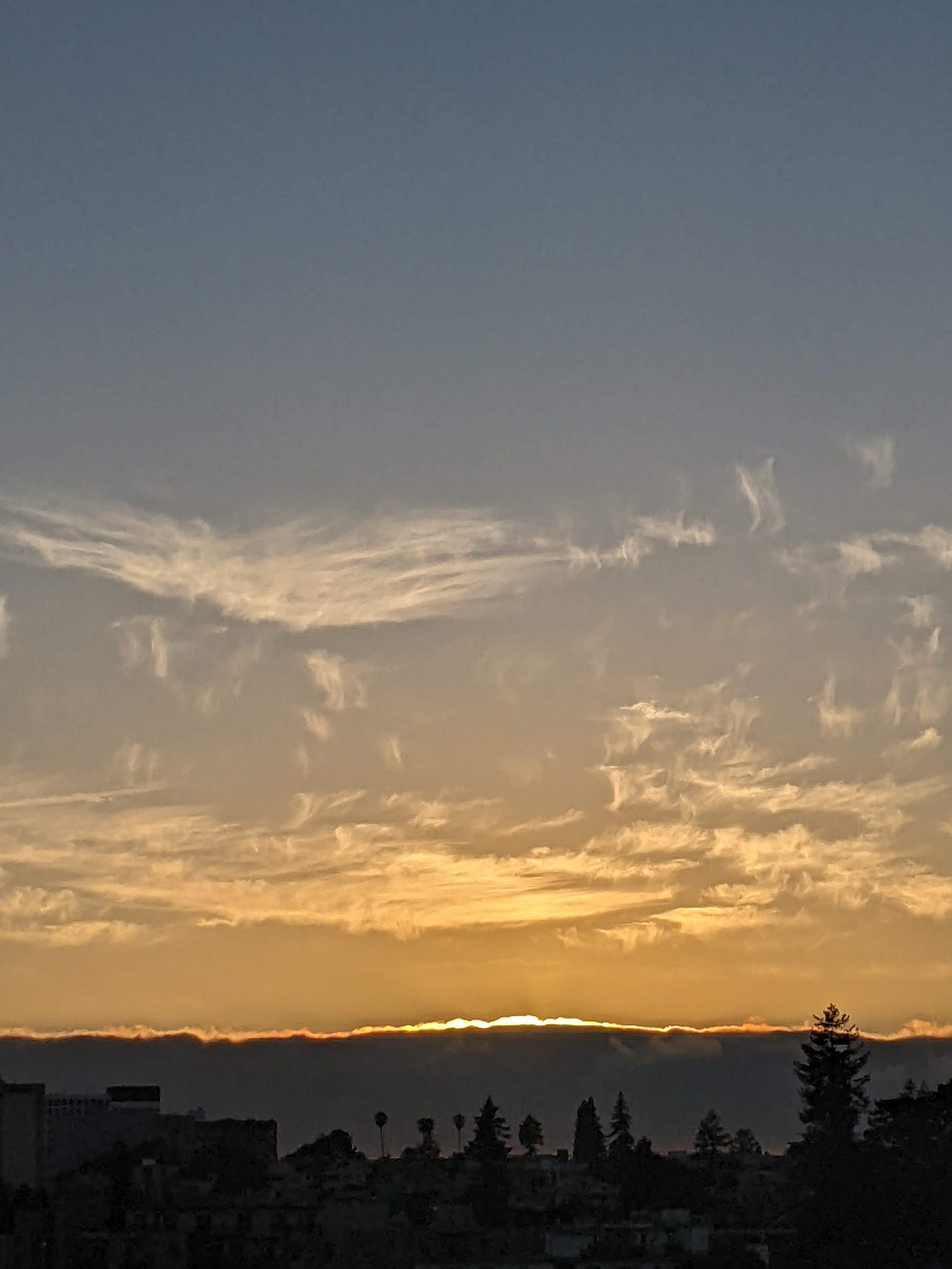day 7
Friday, 4 Nov: light fog, watery sun
I recently saw a post that advised against ‘starting anything new’ during eclipse season. What would the stars say to N, then, who went into labor on the night of the new moon?
Think of Firenze (in book 5) when he says humans cannot know how these movements affect our lives, presumably because our species’ time-scale is so short compared with the schedule of the planets. Or was it that star-bound prophecy is made so far in advance by the nature of their calculation that it is all but impossible for us to interpret them?
Last night I attended a poetry reading via Zoom. I had posted flyers for the series as an undergrad at Cal. The readings always open with a graduate student from the English department before moving on to the main attraction. Last night the student was an old friend from the Berkeley days who just returned there to pursue a PhD. The person who introduced him was another friend from this past close circle. The faculty member who agreed to direct this year’s reading series and moderated the event was my favorite professor from our time there over a decade ago.
Eclipse season, if I’m remembering this right, like retrogrades, hearken back to particular points in time and transform their constitutive elements: using the actors of the past, they propel the plot into the future. The two-week period is usually characterized by chaos and a feeling of nausea, even, as things swirl around and rearrange themselves (think Dorothy in the tornado).
It was surreal to see these people I loved so well as a kid, all at the same scene of the crime, as it were, this series where it all happened. I first met Y at one of these events. I first met B’s partner. And A is still writing the same kind of pensive, undercutting, Foust-ian poems ‘about God.’ B gave a thoughtful, slightly wheedling introduction in his same style, clear, delivered with the tone of a shrug. Professor C’s personality still brims at the lip of his expressions; his abrupt manner is still charming, he still takes everyone aback. He looked well—he must be going on 75—wearing those same eyeglasses with the little rectangular mirror affixed by a piece of curved metal to the left lens for cycling. Two Geminis and a Sagittarius. No wonder I was all over the place back then.
Earlier in the day I had broken the ice and begun listening to the recording of my qualifying exam. It is a squirmy exercise. I transcribe the parts that sound good—my committee members’ incisive questions, mostly, that need considered responses far beyond what I was able to provide in the moment they were asked. I can hear now, with a month between the trial and the evidence review, that they all were steering me with utmost tact towards a feasible project.
In the hours of the exam itself I felt marooned and without comfort: none of them smiled, and they barely met my eyes. But listening over again it is revealed how well they brought their attentiveness to bear on my materials, this by way of their laserlike leading questions. This is just the kind of care in order on such an occasion, and for such professional relationships. In lieu of a campus, a cohort, colleagues, and community during the affective wasteland of the pandemic’s remote learning, my committee likely took the brunt of my (and all their students’) unfulfilled needs. They may have backed off, but they did so instead of buckling. This made the meeting productive—propelled the plot into the future.




